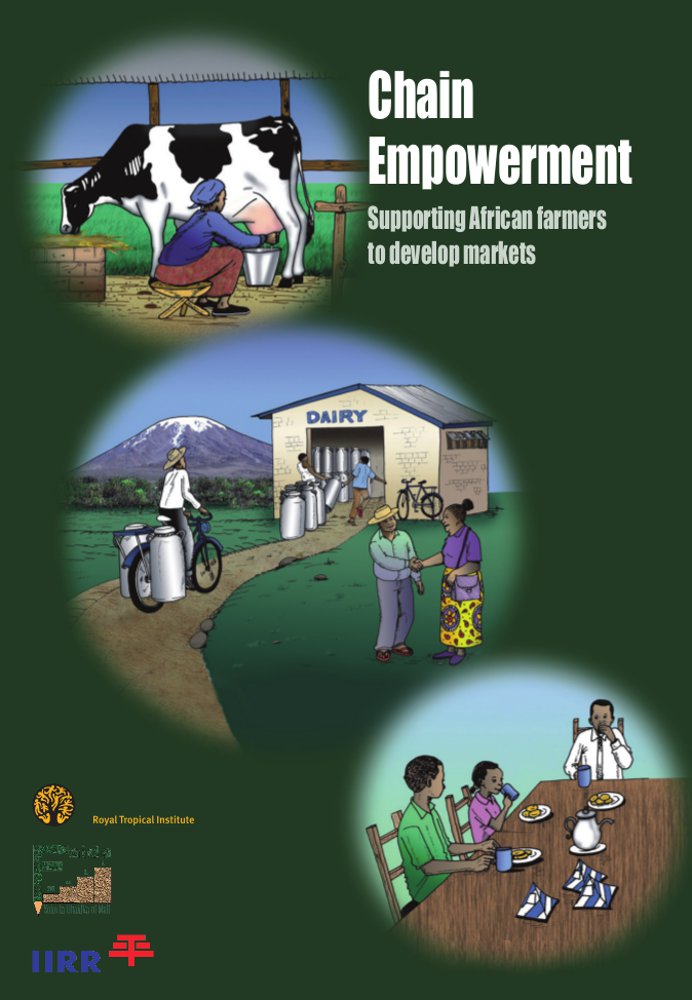Beschrijving
Description:
This is a book of hope for Africa’s smallholder farmers. It shows how they can earn more from their crops and livestock by taking control over the value chains they are part of – chains that link them with consumers in Africa’s towns and cities, as well as in other countries. The book is written in easy-to-understand language and is richly illustrated with line drawings.
The book describes two basic strategies that groups of farmers can use to improve their incomes: vertical and horizontal integration. Vertical integration means taking on additional activities in the value chain: processing or grading produce, for example. Horizontal integration means becoming more involved in managing the value chain itself – by farmers’ improving their access to and management of information, their knowledge of the market, their control over contracts, or their cooperation with other actors in the chain.
This book contains 19 case studies showing how groups of farmers throughout Africa have adopted one or both of these strategies to improve their incomes. It shows how development organizations have helped them do this – how they have succeeded, and how they have sometimes failed. It shows the need to invest in improving the quality of existing products, developing new products, establishing market linkages, and building farmer organization and capacity.
The book provides numerous insights for those striving to empower smallholder farmers to develop markets. It will be of particular interest to government policymakers and staff involved in agricultural development, non-government organizations, university faculty and students, trainers, evaluators, and donors seeking ways to promote agriculture in Africa and elsewhere in the developing world.
